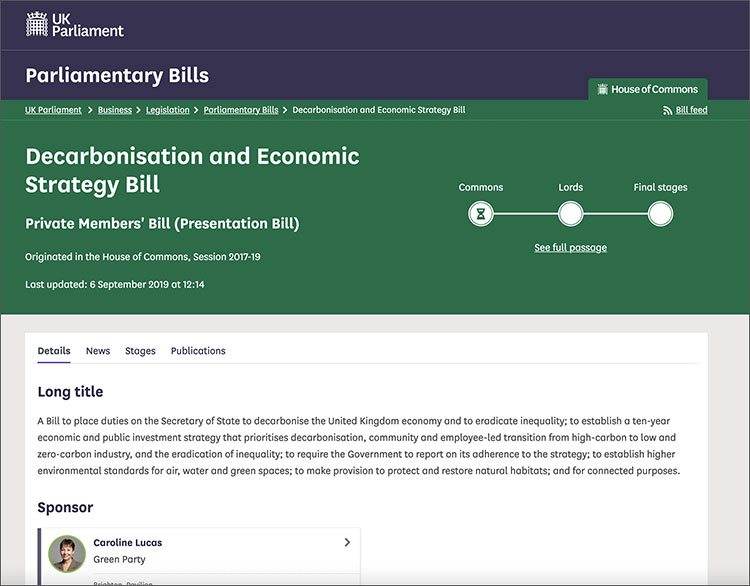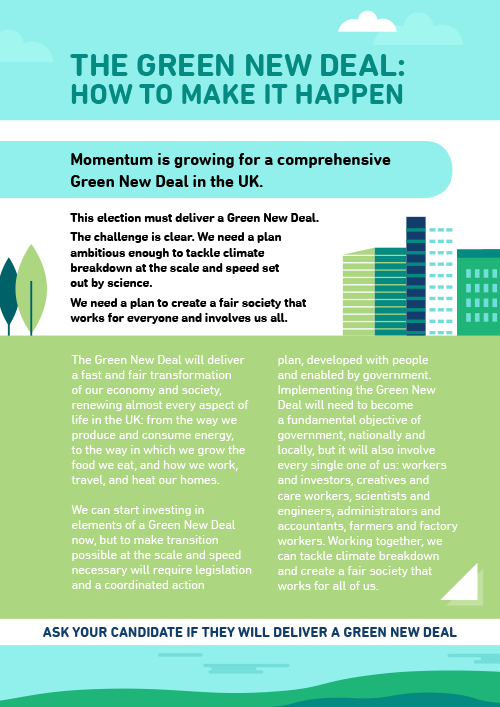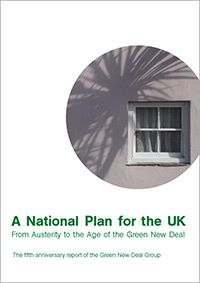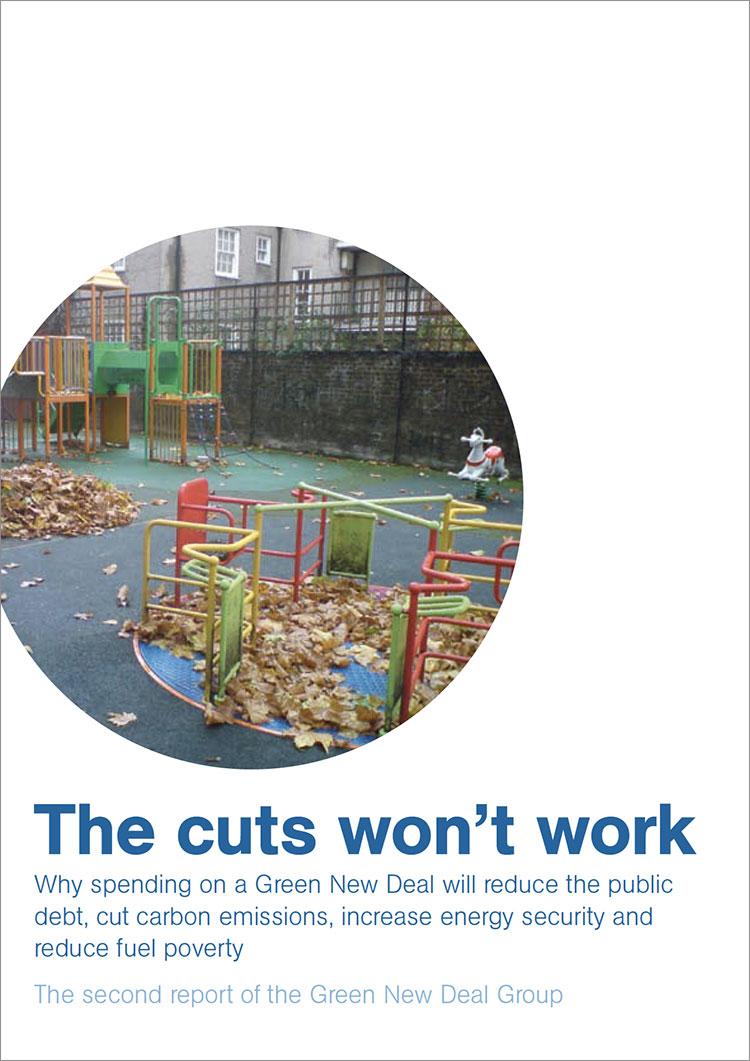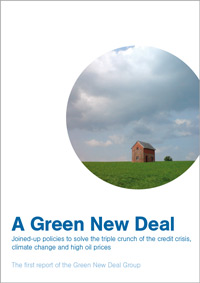The Green New Deal
The Green New Deal is a practical plan for tackling the interlinked crises of inequality and climate breakdown.
In the UK right now, most people are finding it harder and harder to meet their basic needs, while a tiny few profit from exploitation of our labour and the natural world. An economic system geared towards private profit is tearing our society apart and driving climate breakdown.
The Green New Deal will invest to rebuild our society on principles of social and environmental justice, redirecting money away from polluting activities and into public services and climate action.
The Green New Deal has five key pillars:
1. A clean energy future
We need to rapidly end our dependence on oil and gas by transitioning fully to renewable energy and reducing energy demand. We can do this in a way that improves people’s lives: for example, insulating and decarbonising homes makes them more comfortable and lowers bills, while cutting car dependency will have health benefits and free up public space.
2. Jobs and a just transition
There is a huge amount of work to do to move our economy beyond fossil fuels. The Green New Deal will create good quality, well-paid and secure jobs in every corner of the country, and promote workers’ rights and workplace democracy. It will also support skills and training for everyone, with a focus on a fair deal for people moving out of high-carbon industries.
3. An economy fit for purpose
Successive governments have privatised many of our public assets and sold us the lie that we cannot afford to invest adequately for public good. At the heart of the Green New Deal is the belief that the role of the economy is to serve the needs of people and planet: that means a major programme of public investment, funded by a fairer, greener tax system, well-regulated banks with a social purpose and the use of private savings – all underpinned by the ability of the government to create money. This will result in increased economic activity focused on rebuilding the country’s environmental and social infrastructure for the public good, rather than seeing overall GDP growth as a goal.
4. Space for all life
Human health and wellbeing are inextricably linked to nature, but we are living through a mass extinction event because of the pressure from economies on ecosystems. The Green New Deal will restore habitats, widen access to green and blue spaces, and support a food system which benefits people and nature.
5. A global approach
The crises we face are global; no country can address them alone. Globally, if we are to reset our unjust economic system and avert the worst of climate breakdown, we must recognise the UK’s responsibility as historically one of the biggest contributors to global heating. A global Green New Deal means providing the necessary finance and technology transfers to help the majority world adapt to climate change and support human flourishing.
The Green New Deal will transform our energy supply, transport systems, and the way we grow our food
Publications
The Green New Deal Bill
2021, tabled by Caroline Lucas MP and Clive Lewis MP


